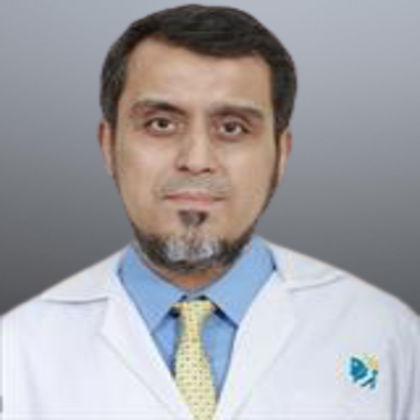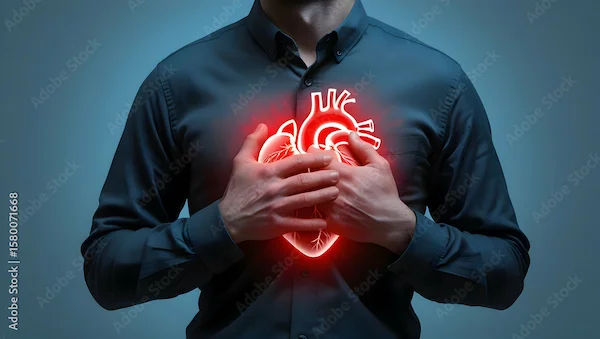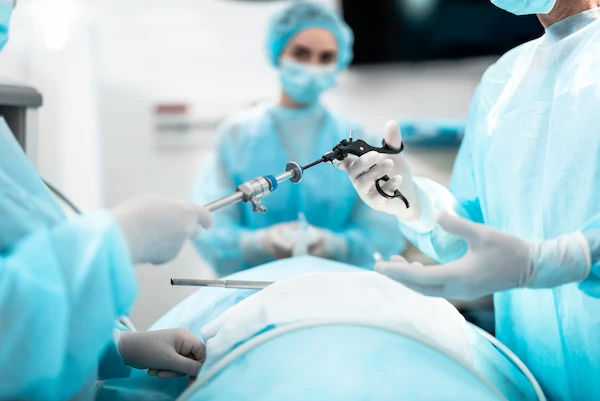Understanding Cervical Cancer and Its Impact
Gain a comprehensive understanding of cervical cancer, from its development and common causes (primarily HPV) to its profound impact on women's health globally. Learn about its symptoms, detection methods, and the crucial importance of prevention and early diagnosis.

Written by Dr. Rohinipriyanka Pondugula
Reviewed by Dr. Shaik Abdul Kalam MD (Physician)
Last updated on 19th Aug, 2025

Cervical cancer is a serious health concern that affects thousands of women worldwide. However, with awareness, early detection, and proper care, it can be prevented and treated effectively. This article aims to provide you with a clear understanding of cervical cancer, its causes, symptoms, and ways to manage or prevent it.
What is Cervical Cancer?
Cervical cancer occurs when abnormal cells in the cervix (the lower part of the uterus that connects to the vagina) grow uncontrollably. The cervix plays a crucial role in childbirth and menstrual cycles, making its health vital for women’s overall wellbeing.
Causes of Cervical Cancer
The primary cause of cervical cancer is the Human Papillomavirus (HPV), a common sexually transmitted infection. While most HPV infections clear up on their own, certain high-risk strains can lead to cervical cancer if left untreated. Other risk factors include:
- Smoking – Weakens the immune system, making it harder to fight HPV.
- Weak immune system – Conditions like HIV or long-term use of immunosuppressive drugs increase risk.
- Multiple pregnancies – May increase susceptibility due to hormonal changes.
- Long-term use of birth control pills – Some studies suggest a link, though more research is needed.
- Family history – A genetic predisposition may play a role.
Symptoms to Watch For
Early stage cervical cancer often shows no symptoms, which is why regular screenings are crucial. As the disease progresses, symptoms may include:
- Abnormal vaginal bleeding (after intercourse, between periods, or after menopause)
- Unusual vaginal discharge (watery, bloody, or foulsmelling)
- Pelvic pain (during intercourse or otherwise)
- Pain during urination
- Unexplained weight loss and fatigue
If you experience any of these symptoms, consult a doctor immediately. Early detection greatly improves treatment outcomes.
How Cervical Cancer Affects Health?
Untreated cervical cancer can spread to nearby organs like the bladder, rectum, liver, and lungs, leading to severe complications. However, when detected early, it is highly treatable. Routine screenings and vaccinations can significantly reduce the risk.
Prevention and Early Detection
Prevention and early detection:
1. HPV Vaccination
The HPV vaccine is highly effective in preventing cervical cancer. It is recommended for girls and boys aged 9–26 years, ideally before becoming sexually active. Adults up to age 45 may also benefit—consult your doctor.
2. Regular Pap Smears (Pap Tests)
A Pap smear detects abnormal cervical cells before they turn cancerous. Women aged 21–65 should get screened every 3–5 years, depending on age and risk factors.
3. HPV DNA Test
This test checks for high-risk HPV strains and is often done alongside a Pap smear for women 30 and older.
4. Safe Sex Practices
Using condoms reduces HPV transmission, though it doesn’t eliminate the risk entirely. Limiting sexual partners also helps.
5. Quit Smoking
Smoking increases cervical cancer risk—seek help to quit if needed.
6. Healthy Diet & Lifestyle
A diet rich in fruits, vegetables, and antioxidants supports immune health. Regular exercise and stress management also contribute to overall wellbeing.
Consult Top Physician
Treatment Options
If diagnosed, treatment depends on the cancer stage:
- Early stage – Surgery (removal of abnormal tissue or the cervix).
- Advanced stage – Radiation, chemotherapy, or a combination.
- Targeted therapy & immunotherapy – For certain cases.
Your doctor will tailor treatment based on your condition.
Emotional and Mental Wellbeing
A cervical cancer diagnosis can be overwhelming. Seek support from:
- Family and friends
- Support groups (online or in person)
- Counselors or therapists
You are not alone—many women successfully overcome cervical cancer with timely care.
When to See a Doctor?
- If you experience unusual symptoms (bleeding, pain, discharge).
- If you’re due for a Pap smear or HPV test.
- If you want to discuss HPV vaccination.
Early action saves lives.
How Apollo 24|7 Can Help?
At Apollo 24|7, we provide:
- HPV Vaccination – Safe and effective protection.
- Pap Smears & HPV Tests – Convenient and accurate screenings.
- Expert Consultations – Gynecologists and oncologists for personalized care.
Book a test or consultation today through the Apollo 24|7 app or website. Early detection is your best defense against cervical cancer.
Final Thoughts
Cervical cancer is preventable and treatable with the right knowledge and medical care. By staying informed, getting regular check ups, and adopting a healthy lifestyle, you can protect yourself and your loved ones.
If you have concerns or need guidance, don’t hesitate to reach out to a healthcare professional. Your health matters—take charge today!
Consult Top Physician
Consult Top Physician

Dr. Rajib Ghose
General Practitioner
25 Years • MBBS
East Midnapore
VIVEKANANDA SEBA SADAN, East Midnapore

Dr. Sandhya Chandel
General Physician/ Internal Medicine Specialist
16 Years • MBBS, MD (Int. Med.), IDCCM
Bilaspur
Apollo Hospitals Seepat Road, Bilaspur
(100+ Patients)

Dr. Ramya Hari
General Practitioner
18 Years • Medical Head & Family Physician, DG Shipping Approved Doctor, Panel Physician - UK Visa Medicals
Chennai
Apollo Medical Centre Kotturpuram, Chennai

Dr. Hariprasath J
General Physician/ Internal Medicine Specialist
19 Years • MD (Gen Med), FCCP, Dip (Diabetology, UK)
Chennai
Apollo First Med Hospitals P H Road, Chennai
(200+ Patients)

Dr. Mohammed Sharouk Khader
General Physician/ Internal Medicine Specialist
11 Years • MBBS, Bach. of Med. & Surg., Dip. of American Board of Family Med.
Chennai
Apollo Hospitals Greams Road, Chennai
(100+ Patients)
Consult Top Physician

Dr. Rajib Ghose
General Practitioner
25 Years • MBBS
East Midnapore
VIVEKANANDA SEBA SADAN, East Midnapore

Dr. Sandhya Chandel
General Physician/ Internal Medicine Specialist
16 Years • MBBS, MD (Int. Med.), IDCCM
Bilaspur
Apollo Hospitals Seepat Road, Bilaspur
(100+ Patients)

Dr. Ramya Hari
General Practitioner
18 Years • Medical Head & Family Physician, DG Shipping Approved Doctor, Panel Physician - UK Visa Medicals
Chennai
Apollo Medical Centre Kotturpuram, Chennai

Dr. Hariprasath J
General Physician/ Internal Medicine Specialist
19 Years • MD (Gen Med), FCCP, Dip (Diabetology, UK)
Chennai
Apollo First Med Hospitals P H Road, Chennai
(200+ Patients)

Dr. Mohammed Sharouk Khader
General Physician/ Internal Medicine Specialist
11 Years • MBBS, Bach. of Med. & Surg., Dip. of American Board of Family Med.
Chennai
Apollo Hospitals Greams Road, Chennai
(100+ Patients)




